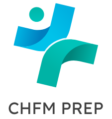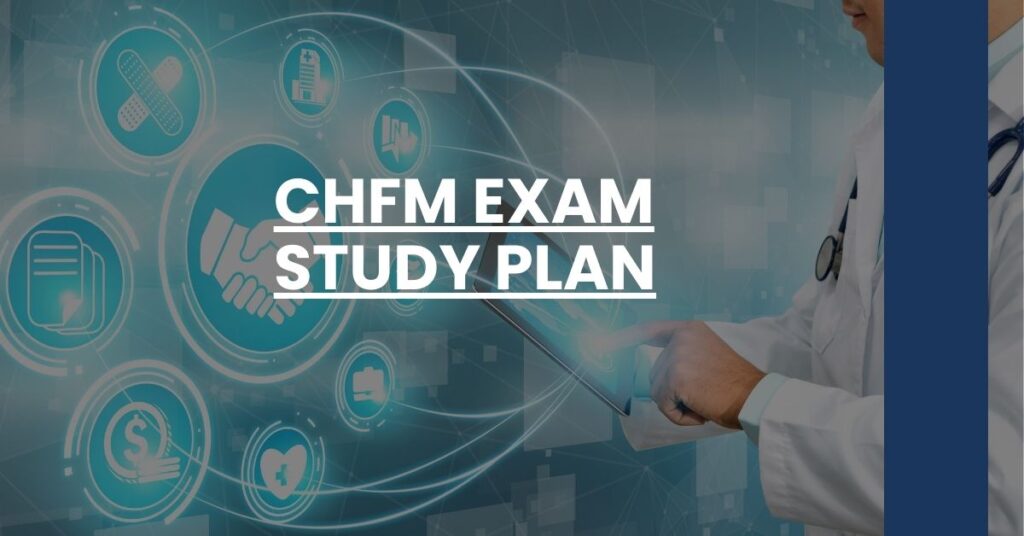Craft your CHFM exam study plan strategically for success.
- Personalized Study Goals: Tailor your objectives for effective progression.
- Focused Study Materials: Utilize the best resources for comprehensive learning.
- Efficient Study Routine: Optimize your prep time with a structured schedule.
Effortlessly navigate your CHFM exam study plan with these tips.
- Understand the CHFM Exam Format and Content
- Setting Study Goals and a Timeline
- Essential Study Materials and Resources
- Developing a Study Routine
- Prioritizing Key Topics for the CHFM Exam
- Active Learning Techniques
- Practice Tests and Self-Assessment
- Managing Study Time Effectively
- Stress Management and Self-Care
- Review and Adjust the Study Plan Periodically
- Final Preparations and Test-Taking Strategies
- Conclusion: Maintaining Confidence and Focus
Understand the CHFM Exam Format and Content
Embarking on your CHFM exam study plan begins with a clear comprehension of what lies ahead. The CHFM exam, consisting of 110 multiple-choice questions, assesses your expertise across five core domains of healthcare facility management. These include Compliance, Administration, Planning and Design, Maintenance and Operations, and Finance. Approaching each domain with a tactical study mindset is instrumental in your preparation.
Grasping the Five Domains
Each domain carries a different weight in the examination, signifying the importance of allocating your study time correspondingly. Get familiar with the specific tasks within each domain — these reflect real-world responsibilities and require varying levels of cognitive engagement:
- Compliance: Brush up on codes, standards, and risk management practices to ensure facility safety.
- Administration: Sharpen your leadership and communication skills vital to managing a healthcare facility.
- Planning and Design: Understand the intricacies of facility construction and renovation within a healthcare setting.
- Maintenance and Operations: Dive into the technicalities of maintaining the physical environment and equipment essential to healthcare operations.
- Finance: Interpret and manage the financial aspects, including budgeting and contract management, which are crucial to your role.
By dissecting the exam content beforehand, your CHFM exam study plan will be tailored to both your strengths and areas needing reinforcement.
Setting Study Goals and a Timeline
A well-crafted CHFM exam study plan not only focuses on what to study but also on how to measure your progression towards your goals. SMART criteria provide a structured approach to effectively manage your preparation efforts.
Crafting SMART Goals
Your CHFM exam preparation strategy must include:
- Specific objectives: Perhaps you want to master healthcare compliance regulations within two weeks.
- Measurable milestones: Keep track of how many practice questions you tackle daily.
- Achievable targets: Don’t stretch yourself too thin; realistic goals are key to success.
- Relevant tasks: Direct your energy to activities that directly contribute to passing the CHFM exam.
- Time-bound plans: Schedule your study and revision time leading up to the exam day.
Establishing a concrete timeline, with scheduled milestones, allows you to monitor your journey and stay on course.
Essential Study Materials and Resources
Analyze the wealth of study materials and resources before diving into your CHFM exam study plan. Optimize your preparation with authoritative guides, practice exams, and member-exclusive content from trusted sources.
Selecting the Right Materials
Determine which resources resonate with your learning style:
- Official Guides: They are the cornerstone of your CHFM prep, providing in-depth coverage of all domains.
- Practice Exams: These simulate the actual test environment and help identify areas needing more focus.
- Online Forums: Engage with peers and experts to exchange knowledge and insights.
Integrating a variety of materials into your study plan leads to a well-rounded preparation.
Developing a Study Routine
Adherence to a well-structured study regimen is the linchpin of your CHFM exam study journey. Consistent study intervals, when balanced with adequate rest, would ensure that you absorb and retain the knowledge more effectively.
Creating Consistency and Balance
Formulate a routine that complements your lifestyle while staying true to your study goals:
- Determine your most productive hours and dedicate that time to your CHFM preparations.
- Balance intense study sessions with breaks to prevent burnout.
- Review studied content regularly to solidify retention.
Your persistence in following a daily routine can solidify your understanding and lead to better performance on the exam.
Prioritizing Key Topics for the CHFM Exam
When constructing your CHFM exam study plan, it’s pragmatic to focus on domains that carry more weight. This ensures that your time is used at peak efficiency.
Focusing on High-Value Areas
Prioritize topics based on their significance:
- Maintenance and Operations: This often commands a substantial part of the exam, so delve deep into this area.
- Compliance: Facility safety is non-negotiable, hence the emphasis on this domain.
- Finance and Administration: Handling the financial and administrative elements underpin the efficient running of any facility.
Targeting these areas does not diminish the importance of other domains but ensures your preparation is proportional to the exam’s emphasis.
Active Learning Techniques
Passive reading will only take you so far. For your CHFM exam study plan to be genuinely effective, integrate active learning strategies that elevate your understanding and long-term retention.
Engaging Actively with the Content
Utilize varied techniques such as:
- Flashcards: For important terms and concepts, making them a fantastic tool for quick recalls.
- Study Groups: Collaborating with peers can expose you to different perspectives and solutions.
- Teaching Others: Explaining concepts to someone else is a testament to your mastery of the subject.
These techniques encourage you to engage with the material actively, ensuring a deeper grasp of the content for the CHFM exam.
Practice Tests and Self-Assessment
Engaging with practice tests is a cornerstone of an effective CHFM exam study plan. It isn’t just about repeating what you’ve learned, but actively placing yourself in the exam scenario and thinking as you will need to on the day.
The Power of Mock Exams
Immersion in practice tests serves multiple functions:
- Identifying Strengths and Weaknesses: Gauge your proficiency in different domains.
- Understanding the Exam Format: Get accustomed to the type and format of questions.
- Time Management Skills: Practice pacing yourself to ensure you can complete the exam in the given time.
Consider using official CHFM practice tests to mirror the exam experience as closely as possible.
Embrace Ongoing Self-Assessment
Keep track of your scores and the types of questions you find challenging. This reflection is key to:
- Adjusting your study plan to focus on weaker areas.
- Developing strategies for more challenging question types.
By assessing yourself regularly, you solidify your knowledge and build confidence.
Managing Study Time Effectively
Your CHFM exam study plan must be a testament to effective time management. Do more than just study; study smart.
Mastering Time Management
Efficient time management requires a strategy:
- Allocate Specific Times for Study: Decide in advance which blocks of time you will devote to studying and stick to them.
- Prioritize Your Tasks: Focus on the more challenging topics when your concentration is at its peak.
- Avoid Multitasking: Dedicating your full attention to one task at a time enhances learning quality.
Remember, the goal is to avoid cramming. Instead, absorb information in a sustainable way that allows for peak retention and recall.
Stress Management and Self-Care
An often underlooked facet of your CHFM exam study plan is maintaining mental and physical health. Stress management and self-care are crucial in helping you retain information and perform at your best.
Incorporate Wellness into Your Study Plan
Ways to weave in self-care could include:
- Regular Exercise: Boosts memory and brain power.
- Balanced Diet: Fuels your body and mind for rigorous study sessions.
- Mindfulness and Meditation: Keeps stress levels at bay and increases focus.
A health-centric approach ensures that you’re in prime condition to learn and recall effectively. Take care of your body and mind, and they will take care of you on the exam.
Review and Adjust the Study Plan Periodically
It’s easy to set a CHFM exam study plan, but the ability to review and adjust it as needed can make all the difference.
Stay Adaptative and Responsive
Regular reviews allow you to:
- Reallocate your study time based on your practice test performances.
- Introduce new study materials or techniques that may have proven effective for others.
- Ensure you are meeting your SMART goals and making adjustments where necessary.
An adaptable study plan is a dynamic tool propelling you toward success.
Final Preparations and Test-Taking Strategies
In the final run-up to the CHFM exam, your study plan should transition into fine-tuning your knowledge and test-taking tactics.
Sharpening Your Arsenal
In these final days, consider the following:
- Resting well before the exam to ensure you’re physically and mentally prepared.
- Revisiting tough concepts for final clarification.
- Developing a checklist of items to bring to the exam center for minimal stress on the day.
Your final preparations should bring together months of hard work into a pinnacle of readiness.
Conclusion: Maintaining Confidence and Focus
Confidence and focus are the final ingredients in your CHFM exam study plan. They bring together your hard work and preparation into a mindset poised for success.
Cultivating a Success Mindset
Remember to:
- Keep a positive outlook. Confidence breeds success.
- Visualize success. Picturing yourself passing the exam can be a powerful motivator.
- Stay focused on the goal. Keep reminding yourself of why you’re taking the exam and what it means to you professionally.
With dedication, savvy planning, and the right mindset, your CHFM certification is within reach. Your conscientious preparation will certainly pay dividends when you achieve your goal. Keep pushing forward, and good luck!

